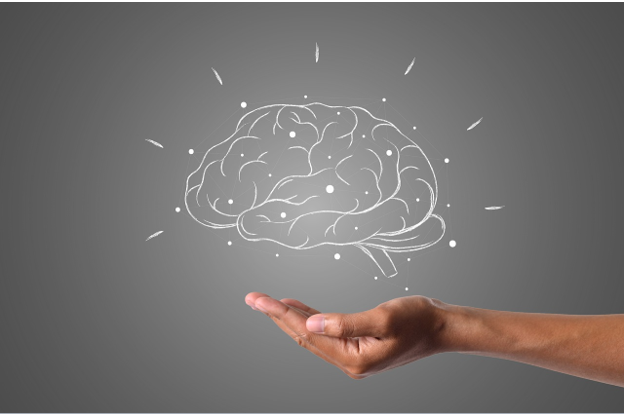Have you ever noticed when you have a lot on your plate, you seem to start forgetting things? Or maybe when you're really stressed, these feelings always seem to come with a headache or other physical symptoms? As it turns out, there are some very important physiological reasons these things happen. Today, we're going to discuss both the effect of stress on the body, as well as what it can do to your memory.
Learn the Effects of Stress on the Body and Memory
Keep in mind, not everyone experiences the effects of stress on the body or memory the same way. In fact, some people seem to do well in stressful situations altogether! Others, who may perhaps have less resilience, seem to experience a number of physical and mental symptoms as soon as stress sets in.
Effects of Stress on the Body
Interestingly, stress can affect almost every one of the body's systems. But it's worth noting these effects aren't always negative!
A certain level of stress can be helpful. This is especially true when it comes to things like productivity or motivation. The problem is, when stress becomes too much (and everyone has a different threshold), we may begin to experience a number of the negative effects of stress on the body.
These include:
Cardiovascular effects
You've probably noticed how your heart pounds in stressful situations. Your body doesn't know the difference between stress caused by a wild animal or stress from a tight deadline. Regardless, your heart rate speeds up to get more blood to the other parts of your body as quickly as possible. Then, you have the resources you need to escape from that wild animal!
This isn't the only cardiovascular effect of stress on the body however. Over time, high levels of stress can lead to high blood pressure and damage to your arteries. Then, this can result in a heart attack. Stress hormones can also tighten your blood vessels. In turn, this means your heart has to work harder to pump blood through your body.
Digestive effects
Those butterflies in your stomach when you're nervous or stressed aren't part of your imagination! Stress can affect your digestive system in a number of ways, including that rumbly feeling we know as butterflies.
In addition to butterflies, you can experience a number of other uncomfortable effects including stomach pain, nausea, and digestive trouble. Stress can also increase your levels of stomach acid. And you know what that means! That dreaded heartburn that creeps up when you're stressed out.
Effects on the immune system
You might have noticed that during or just after a particularly stressful time in your life, you come down with colds or other infections. This is often the result of a weakened immune system thanks to the effects of stress on the body.
A number of stress-induced immune changes have been documented, and you can read more about them here.
Reproductive effects of stress on the body
Stress can also affect the reproductive organs and functions in a variety of ways.
For both men and women, prolonged stress can lead to fertility issues and trouble conceiving. Many women may report delayed or missed periods during particularly stressful times. Erectile dysfunction is commonly seen in men with high stress levels, and both men and women may experience a lower libido as the result of stress.
Sleep
Trouble sleeping is one of the most prominent effects of stress on the body. After all, who can fall asleep when their mind and heart are racing and their thoughts are overwhelming?
In fact, as the APA points out, "even slight sleep deprivation or poor sleep can affect memory, judgment and mood. In addition to feelings of listlessness, chronic sleep deprivation can contribute to health problems, from obesity and high blood pressure to safety risks while driving. Research has shown that most Americans would be happier, healthier and safer if they were to sleep an extra 60 to 90 minutes per night."
Other effects of stress on the body
As we mentioned, stress can affect us all in different ways. In addition to the effects we just covered, there are a number of other ways stress can take on the body. These include weight gain or loss, tense muscles, headaches, body aches, and high blood sugar.
Effects of Stress on the Brain and Memory
We've discussed some of the effects of stress on the body. As you'll see, many of those physical effects may be a lot simpler to spot than some of the ways stress affects the brain and memory.
What's particularly interesting when it comes to stress and memory is how different types of stress can affect memory in different ways.
As this study shares:
"The different regions of the brain are affected differently by stress. These stressors may affect the short term and long term ability differently depending on the source of the stress, the duration of the stress, the intensity of the stress, and the timing that the stress occurs in the memory phase. Primarily, the limbic system deals with stress and anxiety. It had such a strong influence on memory and emotions that it is also known as the emotional brain. When an area of the brain is stimulated by stress, the limbic system responds through the autonomic nervous system through its endocrine glands that automatically help to control our metabolic system (The Franklin Institute)."
That same study also offers a straightforward explanation for exactly how stress chemicals play a role in memory:
"Glucocorticoids are steroids that are made in the adrenal gland. The primary glucocorticoid released when the body perceives a threat is cortisol. When the brain tries to send a signal out to the body, cortisol will interfere with the ability of the neurotransmitters to communicate. This, therefore, makes it difficult to retrieve information from our long term memory (Your Amazing Brain)."
So, next time you find yourself frustrated with forgetting something, cut yourself some slack! It could simply be the result of your body working to protect you from a threat.
Other effects of stress on the brain
It's not just your memory that stress can affect! Your brain works in all kinds of mysterious ways, and stress has a way of interfering with many of these functions. As a result, many people begin to report higher levels of depression, anxiety, and substance abuse.
What's particularly startling is that not only can stress affect how your brain functions, it can even kill brain cells and reduce the size of your brain over time. There's an area of your brain known as the prefrontal cortex. This is the part responsible for memory and learning and chronic stress has been shown to shrink this area. While it can shrink the prefrontal cortex, it can also cause the amygdala (part of the brain that is largely responsible for the fight-or-flight response) to grow! Unfortunately, this means the brain can then become more receptive to stress.
What Can You Do to Combat the Effects of Stress on the Body?
When it comes to the many effects of stress on the body, there are band aids that can help you manage these symptoms. For example, chewing antacids with every meal might help you deal with stress-induced heartburn. But what if you could help your body naturally overcome the effects of stress by promoting your resilience with the help of vagus nerve stimulation?
It might sound complicated, but this is actually one of the simple, effortless steps you can take to promote your well-being. Using tools like the Xen headphones from Neuvana as part of a daily wellness routine may help you boost your mood as your mind and body restore through tVNS (Transcutaneous Vagus Nerve Stimulation).
Click here to learn more or shop Xen by Neuvana today!
For further reading about the effects of stress on the body and memory:





